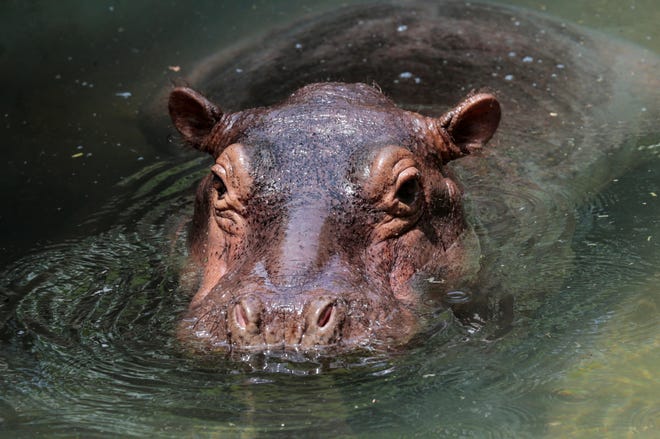**Tragic Death on African Safari: Lawsuit Claims Hippo Mauled Woman**
A tragic incident has occurred during an African safari, where a woman was fatally mauled by a hippopotamus while on a guided tour, according to a recently filed lawsuit. The lawsuit alleges that the woman, whose identity has not yet been publicly disclosed, was attacked by the animal in a remote area of East Africa, leaving her with fatal injuries. The shocking event, which occurred during a popular safari excursion, has raised serious concerns about safari safety and wildlife interaction protocols.
The lawsuit, filed by the family of the victim, accuses the tour company and its operators of negligence in failing to properly assess and manage the risks associated with interacting with wild animals, particularly hippopotamuses. The family claims that despite the dangers posed by hippos, the safari company did not take adequate precautions to ensure the safety of its guests. Hippos, often regarded as one of Africa’s most dangerous animals, are known for their unpredictable behavior and aggressive tendencies, especially when they feel threatened or provoked.
According to the lawsuit, the woman was part of a guided group on a boat tour along a river when the hippo suddenly attacked. The lawsuit states that the hippo charged at the group, and despite attempts to escape, the woman was caught in the animal’s path. Witnesses reported that the attack was swift and violent, with the victim unable to flee or protect herself from the ferocity of the hippo. The family claims that there was insufficient guidance or protocol in place to keep the tourists safe during the excursion.
The incident has sparked outrage among safari-goers, wildlife enthusiasts, and legal experts alike, with many questioning how such an event could occur during what was supposed to be a thrilling yet controlled adventure. Hippos are known to be territorial and can become highly aggressive, particularly if they feel their space is being invaded. Despite this, many safari companies continue to offer boat tours in areas where hippos are commonly found, raising concerns about the extent to which safety measures are prioritized in such activities.
In response to the lawsuit, the safari company involved has expressed its condolences to the victim’s family and offered to cooperate fully with authorities during the investigation. However, the company has denied the allegations of negligence, claiming that the safari was conducted within standard safety procedures and that the incident was an unfortunate and rare occurrence. The company has also stated that it provides its guests with clear safety guidelines before embarking on tours that involve potentially dangerous wildlife.
This tragic death has sparked wider conversations about the responsibilities of tour operators in ensuring guest safety, particularly in regions where dangerous wildlife is prevalent. Many experts are calling for stricter regulations surrounding wildlife tours and better safety training for both operators and tourists. Some argue that more should be done to educate tourists about the risks associated with interacting with wild animals, while others advocate for improved guidelines on how tours should be conducted to minimize the likelihood of such attacks.
The family of the deceased woman has expressed their desire for justice and accountability, stating that no one should have to experience such a tragedy while on a once-in-a-lifetime safari. The lawsuit seeks compensation for wrongful death and emotional distress, and the family hopes that their legal action will prompt greater scrutiny of safari safety practices. The outcome of the case could have significant implications for the future of wildlife tourism, especially in terms of how companies are held accountable for the safety of their guests.
As investigations continue and the legal process unfolds, the safari industry is likely to face increased scrutiny. Tourists and safari companies alike will be watching closely to see how this case is resolved and whether it leads to changes in safety protocols for wildlife tours. For now, the tragic death of the woman serves as a stark reminder of the dangers that come with close encounters with wild animals, even in a controlled setting.
